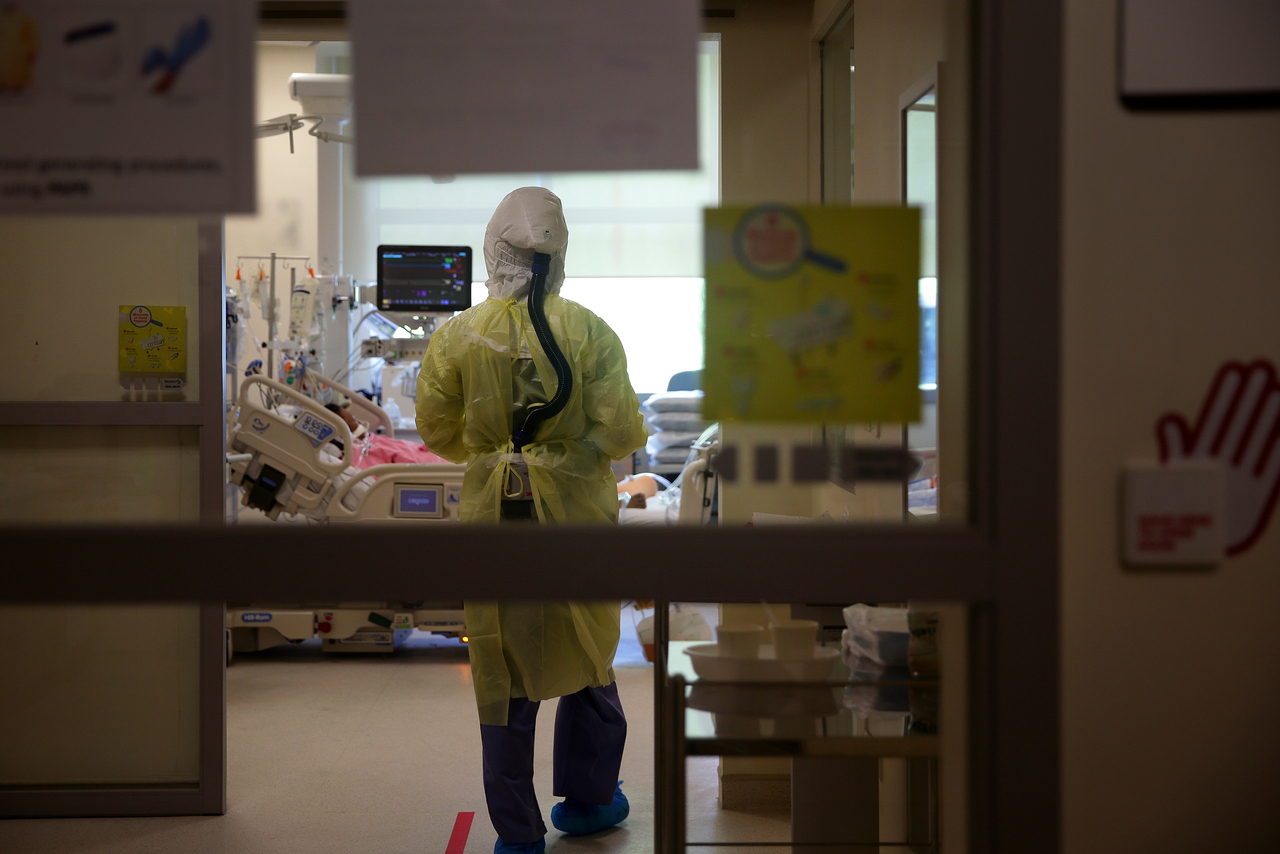Number of Covid-19 patients in ICU can go up very quickly, so S'pore cannot afford to be complacent: Lawrence Wong
Sign up now: Get ST's newsletters delivered to your inbox

People cannot afford to be complacent and assume that ICU numbers will stay low, said Finance Minister Lawrence Wong.
PHOTO: ST FILE
SINGAPORE - The number of Covid-19 patients requiring intensive care can change very quickly, said Finance Minister Lawrence Wong on Sunday (Sept 19).
People thus cannot afford to be complacent and assume that intensive care unit (ICU) numbers will stay low, or that the country's ICU capacity will never be tested, he added.
"Some have told me that based on our high vaccine coverage, and the current ICU figure of 14, we don't have to worry," Mr Wong, who co-chairs the multi-ministry task force on Covid-19, wrote in a Facebook post. "So I thought it might be useful to clarify some points."
Vaccines provide excellent but imperfect protection against severe illness. Health Ministry data shows that about 0.2 per cent of infected people - or one in 500 people - are at risk of needing intensive care.
But even though only a small fraction of people may fall very ill, ICU numbers can grow very quickly when it is applied to a "large and exponentially rising base of infected persons", Mr Wong noted.
Given that a sick person may require intensive care for more than two weeks, a spike in demand for ICU care can quickly become problematic. Singapore currently has about 100 ICU beds for Covid-19 patients, although it can increase this to nearly 300 beds at short notice.
The minister also pointed out that the proportion of people who require intensive care may increase if more seniors or unvaccinated people are infected.
"This is why we must never assume our ICU figures will continue to stay low, or that our ICU capacity will never be put to the test," he said, adding that the next week or two will be critical as Singapore monitors the trajectory of infections and its impact on hospitals.
He urged the public to scale back on non-essential social activities, especially if they are living with seniors or are elderly themselves.
"Continue to practise good hygiene and comply with safe management measures," Mr Wong added. "And test yourself regularly to make sure you are free of the virus, and do not spread it to the people around you."


